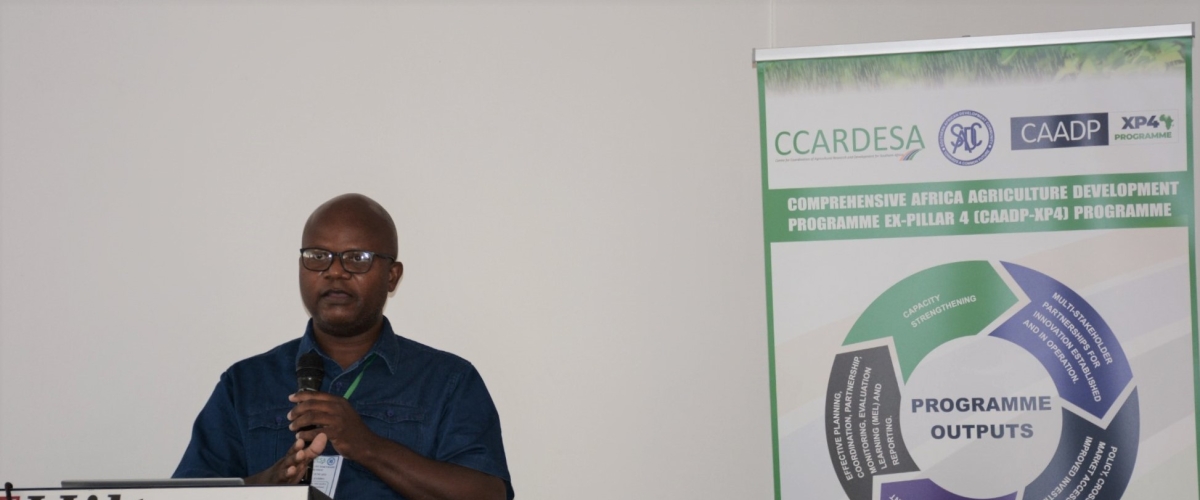
By Dorcas Kabuya Chaaba
Agriculture and trade play a key role in the socio-economic development of Africa, including the Southern African Development Community (SADC) region. There is no doubt that agriculture in Africa is central to poverty reduction since it is a source of livelihood, employment and income for most people.
This scenario is supposed to put Africa at an advantage by trading with one another because of the good agricultural climate condition and the abundance of natural resources, thereby leading to economic growth in the region. However, progress in cross border trade in agricultural inputs and commodities among African countries has been plodding due to several factors.
This compelled the Centre for Coordination of Agricultural Research and Development for Southern Africa (CCARDESA) through the Comprehensive Africa Agriculture Development Programme ex-pillar IV (CAADP-XP4) to facilitate a study on cross border trade among countries in the SADC region.
As a way of engaging stakeholders in the region, CCARDESA convened a workshop whose overall objective was to consult the region and allow stakeholders to provide input to the work of CCARDESA relating to climate-smart agriculture (CSA), cross border trade, agro-ecology and the involvement of the private sector in promoting CSA.
Presenting the findings during the workshop, Emmanuel Mwakiwa, from the Regional Network of Agricultural Policy Research Institutes (ReNAPRI), noted that there are many laws that govern the export in agriculture. Dr Mwakiwa mentioned the lack of harmonisation of import and export regulations in the SADC region, adding that there has been a delayment on the domestication and implementation of regional policies. “There is still limited trade among SADC member states compared to the trade with countries outside the continent and the region due to lack of shared vision on inter-regional trade among countries,” he noted.
Dr Mwakiwa stated that there are a lot of barriers to trade in the region leading to the continent exporting more unprocessed and importing more processed hence disadvantaging the region. “Among the major reasons hampering regional trade include lack of authority and bureaucratic obstacles in dealing with bigger powers, and political instability in some countries,” he said. He further noted that the random bans by governments under the principle of protecting the infant industry has also been a challenge for advancement in regional trade. “There are various and differing export and import procedures for the various CAADP-XP4 countries; some are complicated and take long,” he stressed.
Dr Mwikiwa emphasised that the integration of African countries under a regional body would be an effective means of realising economic growth. “Regional integration in Africa has been seen as a vehicle for promoting trade, securing economies of scale and market access, and realising sustainable growth and development,” he noted.
Dr Mwakiwa noted that SADC is importing more seed than it exports except for South Africa and Zambia, which dominate seed exports in the region. There is a need for harmonisation of regional trade facilitation formalities, which will broadly include the overall reduction of the cost of doing business, which will stimulate the building of regional value chains and, in the long term, facilitate intra-regional investment.
The author is an Agriculture Information Officer at the National Agricultural Information Services. She is also CCARDESA Information, Communication and Knowledge Management (ICKM) focal point person for Zambia.





